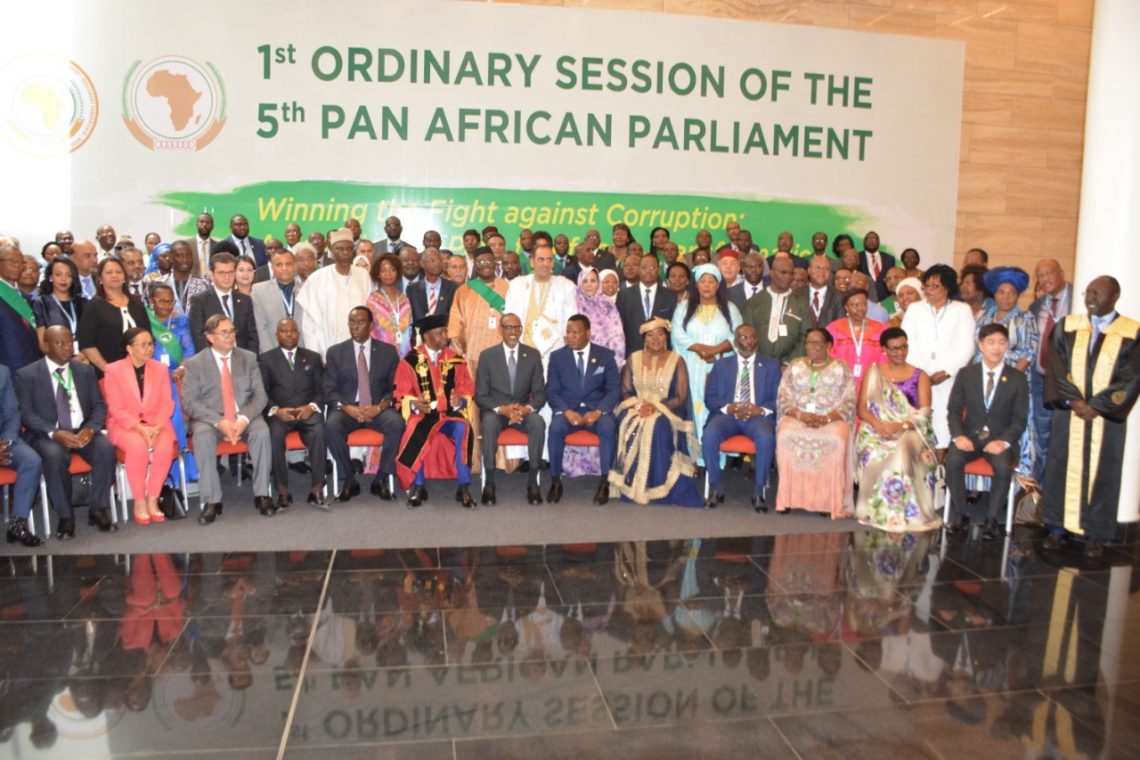The Pan-African Parliament (PAP) has urged its members to ensure that African Union (AU) member states allocate adequate funding to cater for healthcare systems when budgets are submitted to Parliaments for consideration.
The call follows a briefing to members of the PAP Committees on Health and Gender by the Africa CDC, which revealed that inadequate healthcare services impeded Africa’s response to the novel Coronavirus during the early days of the spread of the global health threat.
The Africa CDC has described Africa’s limited health budget, weak health facilities and shortage of health workers as hinderance to the fight against pandemics in general. According to the presentation, only 50% of member states have access to modern health facilities while 10% of GDP is spent on healthcare for most African countries.
Dr. Raji TAJUDEEN, Africa CDCs’ Head for Public Health and Research and Co-Chair of the Africa Task Force for Coronavirus (AFTCOR) told African Parliamentarians that the institution has been spearheading a continental coordination of COVID-19 response to fill the gaps of a weak healthcare system. As it stands, the continent has a total of 251,866 cases; 6,769 deaths; and 114,308 recoveries (45%).
The joint webinar meeting was opened by Hon. Chief Fortune CHARUMBIRA,4th Vice President of the PAP who stressed that the continental Parliament is looking to the Committees on Health and Gender to lead its response to the current health crisis. He said “while this pandemic has prevented us from meeting physically, I am gratified that we are adopting technology to serve our people. As representatives of our citizens, we need to take charge and play a role in the process of finding solutions as we engage with both our peoples and governments.”
Hon. Simplice ZINGAS, Chairperson of the Committee on Health said that experiences from the Covid-19 pandemic should serve as an ignition of a different way of addressing health issues on the Continent. He believes this is an opportunity to reinforce political commitment and accountability to frontload investments to strengthen national health systems and provide long-term domestic resources needed to achieve health goals in Africa.
“Time has come to use our control over national budgets to make health a priority. We call on African Parliamentarians to ensure that budgets presented by governments give a prominent place to health systems in addition to addressing developmental issues. Parliamentarians hold the key to this process and they should only pass budgets that cater for health needs of our people,” says Hon. Zingas.
In April 2001, African Union member states met and pledged to set a target of allocating at least 15% of their annual budget to improve the health sector. 19 years later, only two African countries have reached this target. The Parliament has convened several high-level engagements to call for concrete action to effectively increase investments in health.
Hon. Lucia Mendes dos PASSOS, Chairperson of the Committee on Gender, Family, Youth and People with Disability said that commitments and investments into health need to take into account the right to health in the time of Covid-19 so that social-economic issues that affect women, girls and people with disability are catered for.
“Realizing the right to health must be the foundation of the COVID-19 response. We must not forget that we have groups with special needs; whose situation was still being addressed prior to the COVID-19 pandemic. It is our responsibility to attend to the different needs of women and girls and pay attention to the most marginalized in this time. AU member states must take immediate and progressive steps under the right to health to prevent the public health threat of COVID-19,” Hon. dos Passos remarked.
Invited to brief the joint webinar meeting on ‘Right to health in the time of Covid-19: lessons from HIV for an effective response and the role of Parliamentarians,’ Dr Chuma AENEAS, UNAIDS Regional Director for East and Southern Africa said that access to sexual and reproductive health services for women and adolescent girls and addressing gender-based violence should be top priority.
“Just as HIV held up a mirror to stark inequalities and injustices, the COVID-19 pandemic will be exacerbated by the lack of access to health services, education, protection from violence, socio-economic and psychological support,” concluded Dr. Aeneas.






